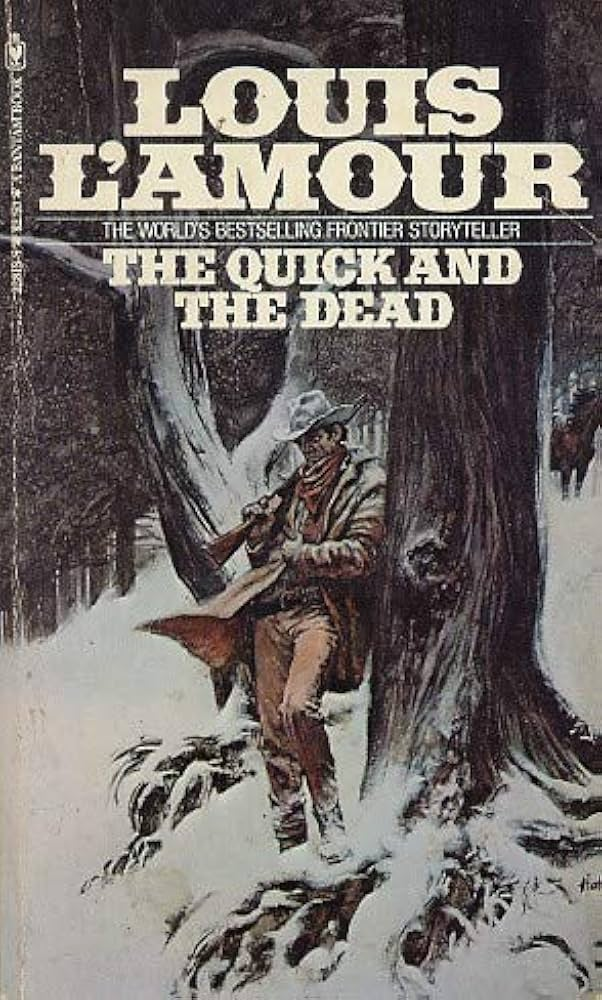“You seem willin’ to take the chance. I’ve known folks to cross all
the way without seein’ ary an Injun, and others had a fight ever’ day. You face
things when you get to ‘em.”
This 1973 novel is a puzzle to me.
Not the plot, meager as it is, that is easily understood.
The puzzle is the utter simple-mindedness this usually on-top-of-it
author brings to this tale.
I add, this novel is often considered one of L’Amour’s best—that in itself
is a puzzle to me.
Puzzle #1
We are clearly asked to admire the frontier protagonist Conn Vallian
who comes to the aid of a Westering family.
The trouble, Conn is not a likable man. As a matter of fact, he behaves
not much better than the carboard villains he has come to “save” the family
from.
We open with the family in peril—a band of ruffians want to steal
their belongings, murder the man of the family and pave their way to taking
liberties with the man’s wife.
Our “hero” Conn drops into the mix and commences with droll humor
about how the woman is “a sight attractive” and might be “in need of company”
once her man is gone.
I believe the author means this as playful banter.
I ask this…if a complete stranger shows up on your doorstep and begins
making overtures to your partner—would you find that playful?
Add to it, this stranger shows up in the midst of danger when the husband’s
death at the hands of other’s seems to be imminent, the “playful banter” strikes
one all the more off-key.
It just doesn’t border on the distasteful it has an air of threat to
it.
If the husband dies, would Conn have continued this wildly odd “banter”,
or would he make good on his intentions?
Initially, I assumed L’Amour was creating a rarity for him, an insidious
villainous presences that the family must also escape. A double-threat.
But, alas, no. We are meant to admire Conn.
The author wastes not a page without a scene that feels would be written
in an outline as follows, “Describe an incident where Conn is cool again.”
Puzzle #2
The villains. Long-time inhabitants of this area one would assume.
Their motivation for pursuing the Westering family so persistently, so far, and
for so long is merely gold.
We are never led to understand why they think this family has this
huge cache of gold or just why this single family of greenhorns has been so successful
in thwarting these hardmen.
Puzzle #3
The timeline. The family is in a single wagon pulled by oxen—no swift
means of travel, one presumably laden with gold and yet, these hardmen on
horseback spend the entire novel trying to “catch up” to the family.
For some reason it takes them months to pursue and catch this apparently
exceptionally fast oxen-led wagon.
At one point, Conn is out of the picture as he recovers from a wound
with a friendly Indian tribe—we are led to believe this took weeks and yet when
the plot circles back to the hardmen, they seem not an inch closer to the wagon
that is presumably slow and laden with all this assumed gold.
Now, before L’Amour fans write me off as a hater, peruse this blog, I’ve
sung the man’s praises here and there, but I gotta call it like I see it—this novel
seems like a first draft at best.
I am pleased I did not start my L’Amour reads with this one. Not sure
I would have pursued further.
Again, if you love this novel, simply assume I am too uncultured to get
the brilliance.
By all means continue to enjoy it.
Consider yourself the winner in this.
For me, it is a puzzling waste of time.





No comments:
Post a Comment
Note: Only a member of this blog may post a comment.